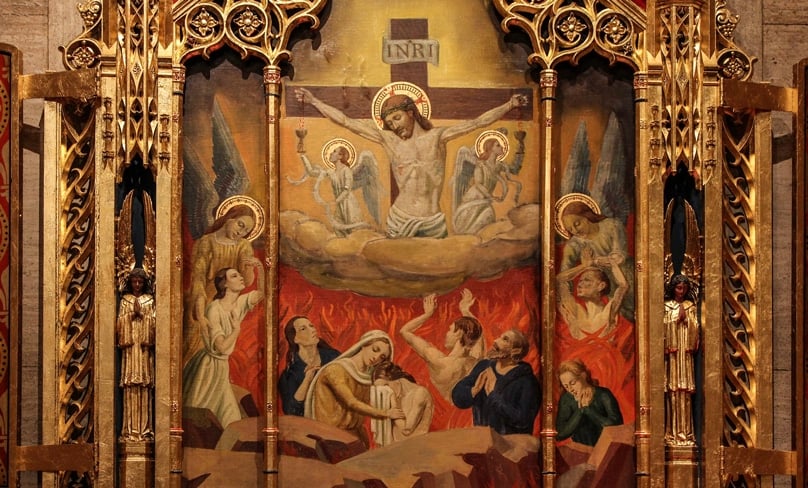
I have heard a number of times, and I accept, that it is quite likely that when they die, most souls will go to purgatory on their way to heaven. Can you tell me what we can we do to avoid purgatory altogether, or at least reduce the time we spend there?
I like the way you phrase the question, because I too am quite convinced that most souls go to purgatory and only relatively few straight to heaven. At least this shows the mercy of God that the majority don’t go to hell! Mind you, this is not a certainty, but only a likelihood.
To answer your question, we must first look at the reasons why souls go to purgatory in the first place. The Catechism of the Catholic Church teaches: “All who die in God’s grace and friendship, but still imperfectly purified, are indeed assured of their eternal salvation; but after death they undergo purification, so as to achieve the holiness necessary to enter the joy of heaven” (CCC 1030).
The words “imperfectly purified” imply that the soul must be perfectly pure in order to go to heaven. We see this in the Scriptures, for example in this passage from the Letter to the Hebrews: “Strive for peace with all men, and for the holiness without which no one will see the Lord” (Heb 12:14). This is understandable. In order to go to heaven and see God face to face, where all is holiness, light, purity, the soul must be all holy, all pure, without any stain of sin.
The traditional teaching of the church is that the soul must be purified of three realities: temporal punishment owing for sin, attachments or bad habits caused by sin, and any lack of sorrow for venial sins.
As for temporal punishment, every sin we commit, whether mortal or venial, requires that we do something to make up for it. We could never make up fully, in justice, for even the slightest
venial sin committed against the almighty, all merciful God. Nor does God expect it. In his mercy he expects much less than our sins deserve, but we must do something. That is why, for example, our mother the church puts days and seasons of penance in the church calendar.
Here is where what I like to call our “spiritual bank account” comes in. We all have a spiritual bank account. We increase the balance by our good deeds, prayers, penances, the reception of the sacraments, indulgences, etc. And we withdraw from it through our sins and other misdeeds. At any one time, the balance will be positive or negative. If when we die it is negative, because we haven’t sufficiently made up for our sins, we will go to purgatory. Of course, if we die in the state of unrepented mortal sin, we will go to hell (cf. CCC 1033).
To avoid purgatory, our balance must be positive when we die. For this reason, we should try to commit fewer sins and do all we can to make up for our sins, so that our balance is positive. Since we can never know what our balance is at any one time, we do well to assume that it is negative and strive to commit fewer sins and increase our good deeds. Naturally, God in his infinite mercy may very well overlook a slight negative balance and take us straight to heaven. But we should not take that for granted.
The second reality of which we must be purified is any bad habits or attachments caused by sin. This refers to serious bad habits and attachments. For example, we may be excessively attached to material possessions, to food and drink, to social media or other internet sites, to our good reputation, to gambling, etc. To go to heaven, we must be able to tell God truly that we love him with our whole heart, and this is incompatible with any undue love for, any attachment to, something here below.
And thirdly, we must be sorry for all our sins, including venial sins. If we are not sorry for a venial sin we will not go to hell, but we are not ready for heaven either. Loving God with our whole heart is incompatible with not being sorry for some sin against him. So, we should always be truly sorry for all our sins, including venial sins.
If we live like this, if we truly strive for holiness, we have every chance of going straight to heaven, bypassing purgatory, when we die. But if we fall short, we should never forget that purgatory, while a state of suffering, is the happiest place outside of heaven.
